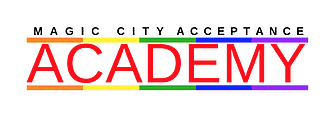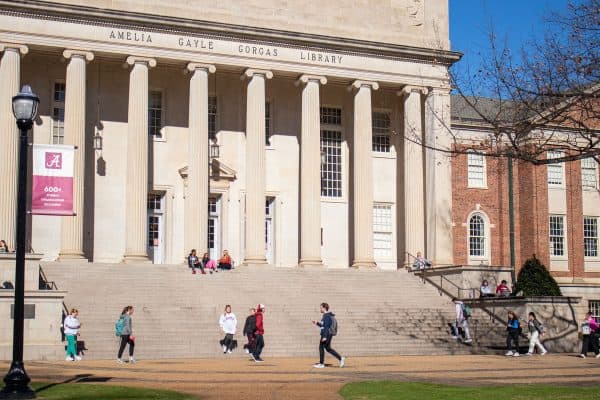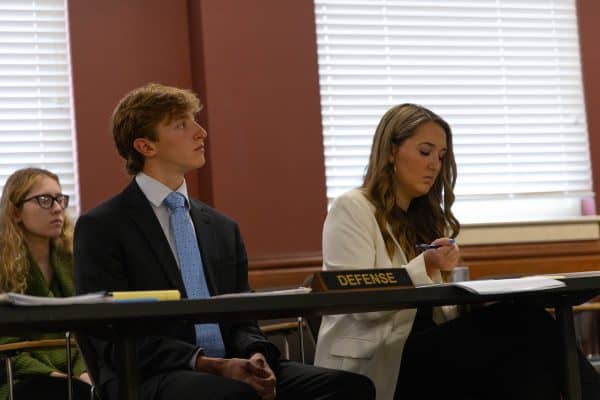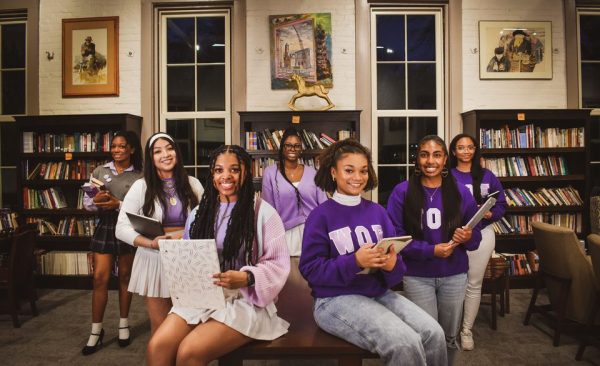Alabama charter school introduces LGBTQ-affirming curriculum
October 17, 2021
Michael Wilson received $2 million last November to fund the Magic City Acceptance Academy, his dream for a public LGBTQ-affirming charter school. He envisioned a school that prioritizes helping students learn to develop strong, healthy relationships, staffed with professionals trained in trauma response — the first school of its kind in the Southeast.
After facing several barriers and revising their constitution multiple times, Wilson and his team received the green light from the city of Birmingham. Administrators worked for months to develop a progressive and groundbreaking public school curriculum that catered to the students of Birmingham who were dropping out, deciding to home-school, facing bullying, or needing extra support to process their trauma.
The Trevor Project’s 2020 National Survey on LGBTQ Mental Health estimated that 40% of LGBTQ respondents seriously considered attempting suicide in the past 12 months, and 68% of LGBTQ youth reported symptoms of generalized anxiety disorder in the past two weeks, including more than 3 in 4 transgender and nonbinary youth.
The Acceptance Academy’s mission is to “facilitate a community in which all learners are empowered to embrace education, achieve individual success, and take ownership of their future in a brave, LGBTQ-affirming learning environment.”
With this, the staff hopes to create a “brave space” for the students.
“When you create a ‘safe space,’ not everyone can feel mentally, physically and emotionally safe. We can’t guarantee that, but what we can guarantee is that students have the ability in the space to be heard,” said Charity Jackson, the chief academic officer for MCAA.
“When there are breaches of trust, breaches of respect, students can have the space to advocate for themselves, as well as advocate for others, and that’s kind of the microcosm that we’re building here that we want to see in the world,” Jackson said.
According to the academy’s website, MCAA is a no-tuition public charter school. It adheres to the rules of the Alabama Charter School Commission and therefore is not a specific identity school.
They admit students via an application lottery process. The academy operates from an admission waiting list when there is a volume of applications larger than the school’s capacity. It hopes to expand in size and capacity in the coming years to serve more students in need of a place like Magic City.
The academy is built upon three pillars: social-emotional learning, trauma-informed practices and restorative justice principles.
The school tailors every aspect of the student’s experience to suit these values. Students are taught about emotion regulation, the physical manifestation of emotions, and how to handle conflicts with peers by addressing the emotional subtext of the issue.
Faculty are trained to interact with students in ways that are cognizant and compassionate of each student’s identity, background and pain. Finally, the school intentionally bases its action on respect and justice.
“We had an assembly a couple of weeks ago, and we set the community norms before we even started the assembly because every student is different and I need to verbalize what respect looks like to me,” Jackson said.
MCAA has left behind the days of learning from textbooks. The school has textbooks available for supplementary learning but allows teachers to develop a curriculum that best suits their students.
From exposure to text of any kind, students are equipped to analyze the internal biases of the author and the cultural dynamics that brought the text about. Even with purely informational text, instructors pay close attention to who is reflected and who may be hurt by the words students are given in class.
The academy’s curriculum is not only unique in its stance on textbooks. As an LGBTQ-affirming institution, MCAA operates within the gray area of Alabama health education legislation and expands upon current practices in the health curriculum.
The state of Alabama is one of many in the U.S. that is still under the jurisdiction of what have been nicknamed “no promo homo” laws. Health educators in public schools are prohibited from teaching about lesbian, gay and bisexual lifestyles in a positive manner if they are allowed to at all.
Due to the academy’s classification as LGBTQ-affirming, health staff mold health curriculum to inform and support the diversity of the student body and faculty. There are still some obstacles and boundaries that can’t be crossed, but teachers do all they can to teach every student about their health.
And if students don’t think that’s enough, they take initiative and become the change.
“We have a student who is creating a club … that is about LGBTQ comprehensive health. Students do have the opportunity to build a club that they want to see that we may not be servicing during the school day,” Jackson said.
Despite legislative obstacles, the school actively works to provide students resources for personal and sexual health. The school is a pillar of the Magic City Acceptance Center, a nonprofit connected to Birmingham AIDS Outreach, so students have access to the counselors and wellness centers owned by the organization.
MCAA staffs in-house counselors and a social worker to support the mental health of the student body, and those staff members host individual and group sessions and events for students.
Birmingham AIDS Outreach was one of the deciding factors in the school’s location. Birmingham is one of the only cities in the Southeast to have an LGBTQ youth center, which is one of the most important partnerships for the school.
“Birmingham is, I think, on the brink of or the precipice of all of the things that are shifting and changing, so I think that it’s appropriate that MCAA would be in Birmingham,” Jackson said.
Birmingham invests in its community through MCAA, and the academy hopes to serve as a flagship institution, with dreams of similar schools across the country serving and supporting this modern generation of students and their unique needs.
“It’s a really wonderful thing to give LGBTQ kids a space separate from the cultural homophobia prevalent especially in the South,” said Helen Fleming, a UA sophomore majoring in marine science and biology. “I definitely think MCAA will save lives and help keep kids in school.”
Fleming said she supports building a structure of education that protects and serves queer youth.
The public’s understanding of what a fulfilling and substantive education looks like is changing. Along with instruction in core subjects, teachers are beginning to take informed action to center the curriculum around the personal and mental well-being of students.
MCAA is one of the inaugural schools to integrate this newfound mission deliberately into the school’s operations.
It is Magic City’s hope that more schools will follow their lead and collectively produce a generation of emotionally intelligent, highly compassionate adults that are respectful of each person’s individual experience in this life.
Questions? Email the Culture desk at [email protected].











